Nobel Peace Prize Laureates
While serving in office Before serving in office After serving in office In between two non-consecutive terms |
| Portrait | Nobel Laureate [1] | Year | Country [1] | Status [1] | Rationale |
|---|---|---|---|---|---|
 | Theodore Roosevelt (1858–1919) | 1906 | 26th President of the United States (14 September 1901 – 4 March 1909) | For his role in bringing to an end the bloody war recently waged between two of the world's great powers, Japan and Russia. [2] [3] | |
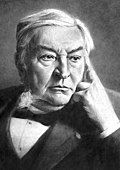 | Auguste Beernaert (1829–1912) | 1909 | Prime Minister of Belgium (26 October 1884 – 26 March 1894) | For their prominent position in the international movement for peace and arbitration. [4] [5] (Jointly awarded to another leading figure French politician Paul Henri d'Estournelles de Constant) | |
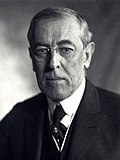 | Woodrow Wilson (1856–1924) | 1919 | 28th President of the United States (4 March 1913 – 4 March 1921) | For his role as founder of the League of Nations. [6] [7] | |
 | Léon Bourgeois (1851–1925) | 1920 | Prime Minister of France (1 November 1895 – 29 April 1896) | For his longstanding contribution to the cause of peace and justice and his prominent role in the establishment of the League of Nations. [8] [9] | |
 | Hjalmar Branting (1860–1925) | 1921 | Prime Minister of Sweden (10 March 1920 – 27 October 1920) (13 October 1921 – 19 April 1923) (18 October 1924 – 24 January 1925) | For their lifelong contributions to the cause of peace and organized internationalism. [10] [11] (Jointly awarded with another non–leading figure Norwegian political scientist Christian Lange) | |
 | Aristide Briand (1862–1932) | 1926 | Prime Minister of France (24 July 1909 – 27 February 1911) (21 January 1913 – 18 March 1913) (29 October 1915 – 17 March 1917) (16 January 1921 – 12 January 1922) (28 November 1925 – 17 July 1926) (29 July 1929 – 22 October 1929) | For their crucial role in bringing about the Locarno Treaty. [12] [13] (Jointly awarded to two world leaders Aristide Briand and Gustav Stresemann) | |
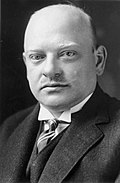 | Gustav Stresemann (1878–1929) | Chancellor of Germany (Weimar Republic) (13 August 1923 – 30 November 1923) | |||
 | Lester Bowles Pearson (1897–1972) | 1957 | 14th Prime Minister of Canada (22 April 1963 – 20 April 1968) | For his crucial contribution to the deployment of a United Nations Emergency Force in the wake of the Suez Crisis. [14] [15] | |
 | Willy Brandt (1913–1992) | 1971 | Chancellor of the Federal Republic of Germany (22 October 1969 – 7 May 1974) | For paving the way for a meaningful dialogue between East and West. [16] | |
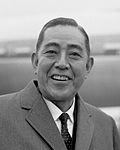 | Eisaku Sato (1901–1975) | 1974 | Prime Minister of Japan (9 November 1964 – 7 July 1972) | For his contribution to stabilize conditions in the Pacific rim area and for signing the Nuclear Non–Proliferation Treaty. [17] [18] (Jointly awarded to another leading figure Irish politician of different cause Seán MacBride) | |
 | Anwar Sadat (1918–1981) | 1978 | 3rd President of Egypt (15 October 1970 – 6 October 1981) | For jointly having negotiated peace between Egypt and Israel in 1978. [19] (Jointly awarded to two world leaders Muhammad Anwar el–Sadat and Menachem Begin) | |
 | Menachem Begin (1913–1992) | 6th Prime Minister of Israel (21 June 1977 – 10 October 1983) | |||
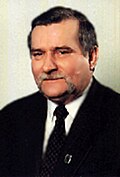 | Lech Walesa (born 1943) | 1983 | President of Poland (22 December 1990– 22 December 1995) | For non–violent struggle for free trade unions and human rights in Poland. [20] | |
 | Óscar Arias (born 1940) | 1987 | 40th President of Costa Rica (8 May 1986 – 8 May 1990) 45th President of Costa Rica | For his work for lasting peace in Central America. [21] | |
 | Mikhail Gorbachev (1931–2022) | 1990 | Chairman of the Presidium of the Supreme Soviet of the Soviet Union (1 October 1988 – 25 May 1989) Chairman of the Presidium of the Supreme Soviet of the Soviet Union President of the Soviet Union | For the leading role he played in the radical changes in East–West relations. [22] | |
 | Aung San Suu Kyi (born 1945) | 1991 | State Counsellor of Myanmar (6 April 2016 – 1 February 2021) | For her non–violent struggle for democracy and human rights. [23] | |
 | Frederik Willem de Klerk (1936–2021) | 1993 | 7th State President of South Africa (14 August 1989 – 10 May 1994) | For their work for the peaceful termination of the apartheid regime, and for laying the foundations for a new democratic South Africa. [24] (Jointly awarded to two world leaders Nelson Mandela and Frederik Willem de Klerk) | |
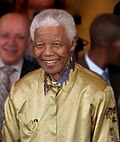 | Nelson Mandela (1918–2013) | 1993 | 1st President of South Africa (10 May 1994 – 14 June 1999) | ||
 | Yitzhak Rabin (1922–1995) | 1994 | 5th Prime Minister of Israel (3 June 1974 – 20 June 1977) (13 July 1992 – 4 November 1995) | For their efforts to create peace in the Middle East. [25] (Jointly awarded to three world leaders Yasser Arafat, Yitzhak Rabin and Shimon Peres) | |
 | Yasser Arafat (1929–2004) | 1st President of the Palestinian National Authority (2 April 1989 – 11 November 2004) 1st President of the State of Palestine | |||
 | Shimon Peres (1923–2016) | Acting Prime Minister of Israel (22 April 1977 – 21 June 1977) 8th Prime Minister of Israel 9th President of Israel | |||
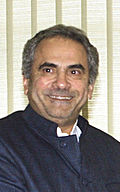 | José Ramos Horta (born 1949) Currently in office | 1996 | 3rd Prime Minister of Timor-Leste (26 June 2006 – 19 May 2007) 4th President of Timor-Leste 7th President of Timor-Leste | For their work towards a just and peaceful solution to the conflict in Timor-Leste. [26] (Jointly awarded with another non–leading figure East Timorese priest Carlos Filipe Ximenes Belo) | |
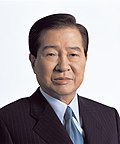 | Kim Dae–jung (1924–2009) | 2000 | 8th President of the Republic of Korea (25 February 1998 – 24 February 2003) | For his work for democracy and human rights in South Korea and in East Asia in general, and for peace and reconciliation with North Korea in particular. [27] | |
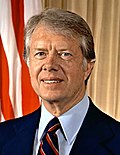 | Jimmy Carter (1924–2024) | 2002 | 39th President of the United States (20 January 1977 – 20 January 1981) | For his decades of untiring effort to find peaceful solutions to international conflicts, to advance democracy and human rights, and to promote economic and social development. [28] | |
 | Muhammad Yunus (born 1940) Currently in office (interim leader) | 2006 | 5th Chief Adviser of the Interim Government of Bangladesh [α] (8 August 2024 – Incumbent) | For their efforts to create economic and social development from below. [29] [A] [B] (Jointly awarded with another corporation Bangladeshi Grameen Bank) | |
 | Martti Ahtisaari (1937–2023) | 2008 | 10th President of Finland (1 March 1994 – 1 March 2000) | For his important efforts, on several continents and over more than three decades, to resolve international conflicts. [30] | |
 | Barack Obama (born 1961) | 2009 | 44th President of the United States (20 January 2009 – 20 January 2017) | For his extraordinary efforts to strengthen international diplomacy and cooperation between peoples. [31] | |
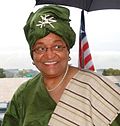 | Ellen Johnson Sirleaf (born 1938) | 2011 | 24th President of Liberia (16 January 2006 – 22 January 2018) | For their non–violent struggle for the safety of women and for women's rights to full participation in peace–building work. [32] [A] (Jointly awarded with an two other activists Liberian Leymah Gbowee and Yemeni Tawakkul Karman) | |
 | Juan Manuel Santos (born 1951) | 2016 | 32th President of Colombia (7 August 2010 – 7 August 2018) | For his resolute efforts to bring the country's more than 50–year–long civil war to an end. [33] | |
 | Abiy Ahmed (born 1976) Currently in office | 2019 | Prime Minister of Ethiopia (2 April 2018 – Incumbent) | For his efforts to achieve peace and international cooperation, and in particular for his decisive initiative to resolve the border conflict with neighbouring Eritrea. [34] |




